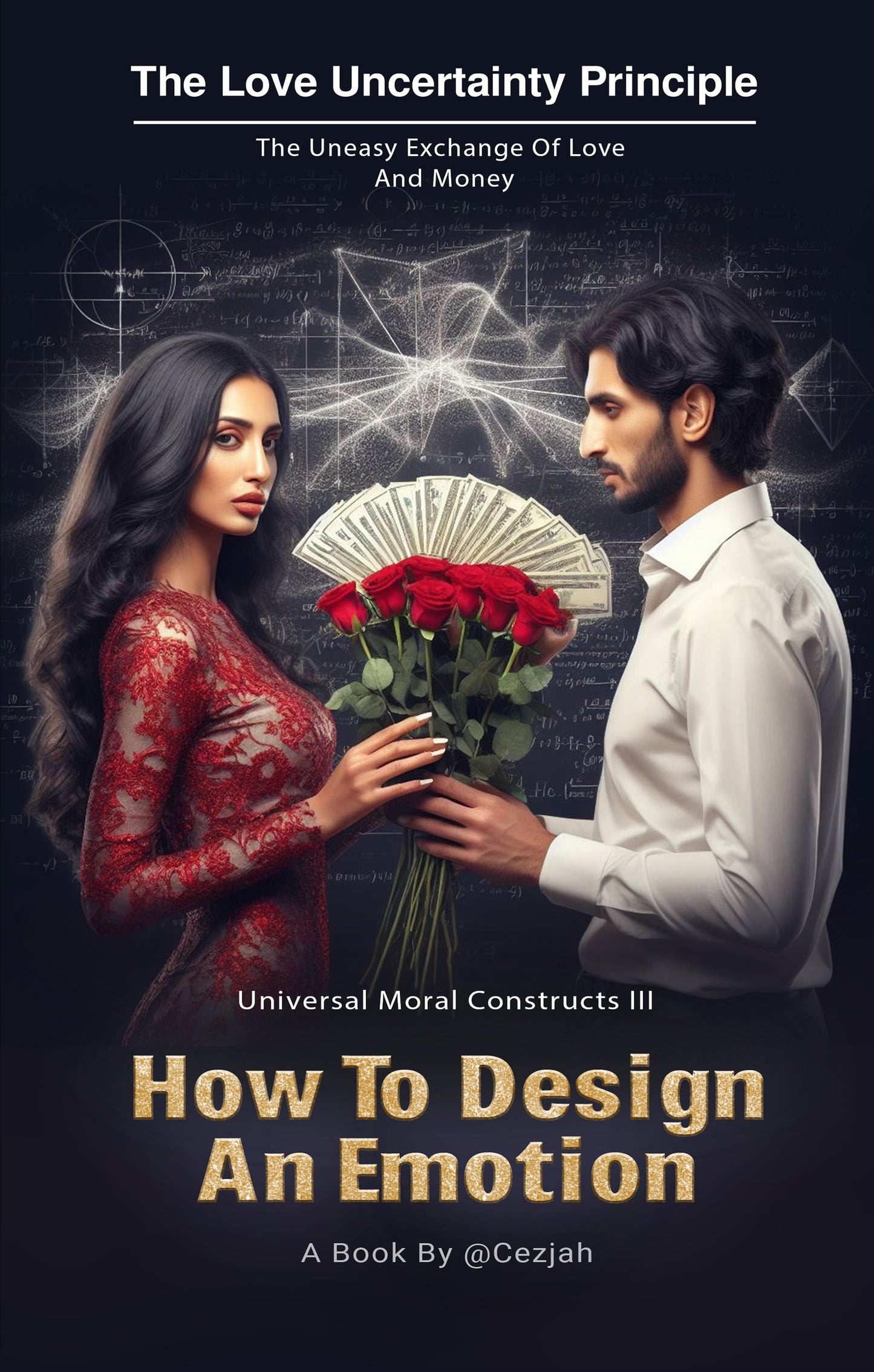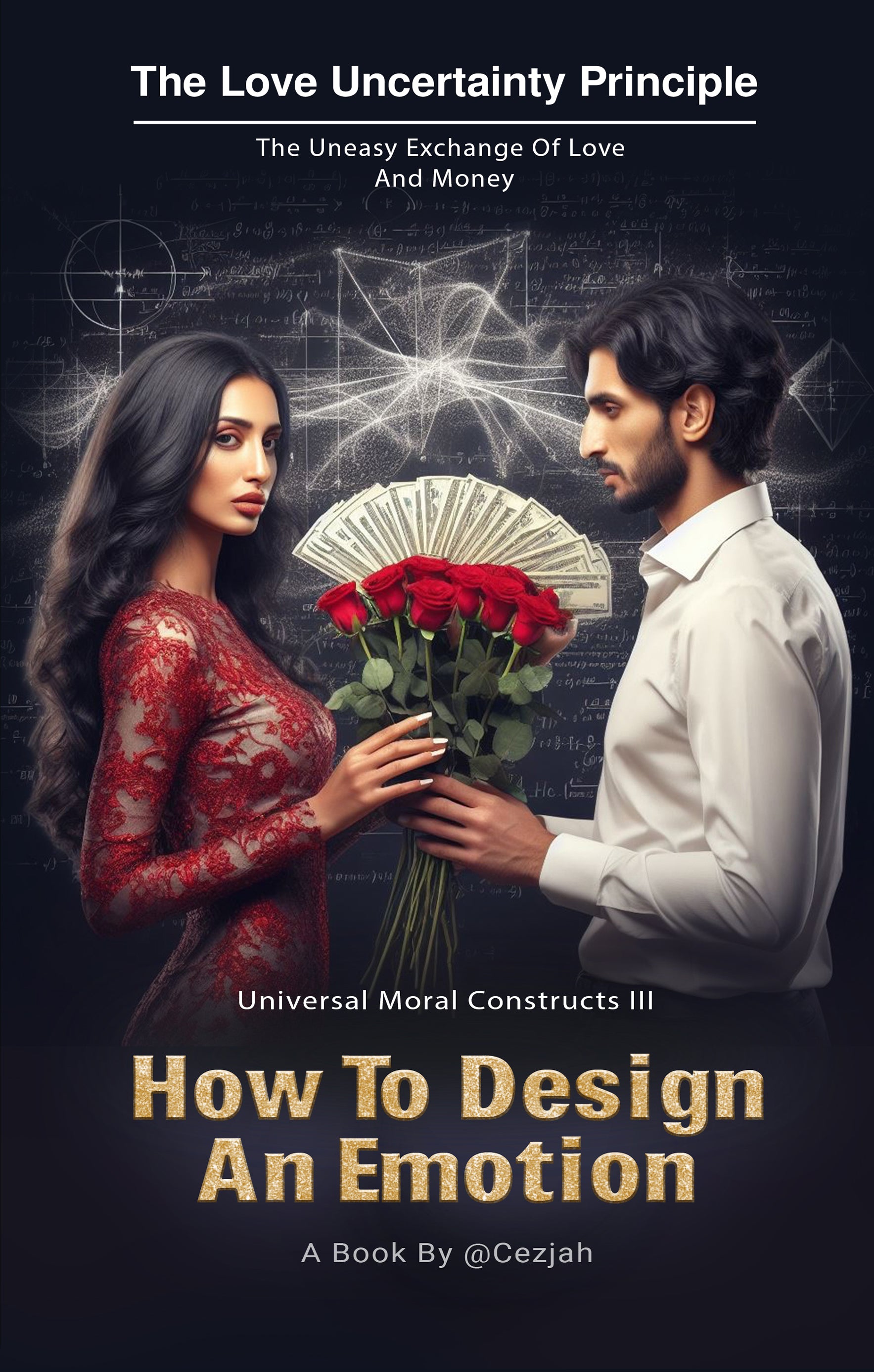What if everything you thought you knew about love was only part of the story? Is love a universal truth or a complex illusion shaped by society? Traversing the philosophical musings of ancient Greece to the advanced realms of modern neuroscience, this book reveals love's multifaceted glory, where emotions of love, romance, and attachment illuminate the neural pathways in a captivating dance.
This content provides an introduction to several innovative principles to help mitigate the dark side of love, which can lead to addiction, codependency, and a psychotic condition called limerence. The concepts in question are the following:
The Love Uncertainty Principle: Drawing inspiration from Heisenberg's Uncertainty Principle in quantum physics, this principle applies a similar concept to romantic relationships. It emphasizes the inherent challenge of prioritizing the love experience and the value exchange. The principle illustrates how focusing too heavily on explicit negotiations, such as those around sexual dynamics, can lead to a loss of emotional intimacy and authenticity in the relationship.
Cezjah's Triangular Theory: Featuring three vertices - The exchange of value, relationship types, and the love experience. Fundamental to this principle is the acknowledgment that all sex relationships are transactional but proposes that focusing on non-obligatory mutual motivation over contractual dynamics mitigates against engaging in an act of prostitution.
The Principle of Microdosing: Just as microdosing in pharmacology involves taking minimal doses of a drug to achieve beneficial effects without adverse consequences, the book suggests applying a similar approach to detach or manage attachment.
The Principle of High Availability: This principle advocates distributing emotional investment across various 'emotional computer servers' such as friends, family, hobbies, and even multiple lovers, thereby avoiding a 'single point of failure'.
The Principle of Microservices: The unique emotional and utility benefits traditionally derived exclusively from a significant other can be more effectively and efficiently obtained at a higher value and lower psychological and financial cost by deconstructing them into individual components and sourcing each from specialized friends and vendors.
The book also challenges conventional notions of fidelity and commitment, questioning why promises are often more valuable than those involved. It explores consensual polyamory (including do not ask, do not tell) as a healthy option for mandatory exclusivity. It also explores how to avoid being in a relationship where one partner monopolizes critical love languages and acts of service, potentially stifling fulfillment.
Transform your understanding of love and clarify the terms of engagement. Embark on this transformative journey and uncover the mysteries of love.
Couldn't load pickup availability
The Love Uncertainty Principle
How to Design an Emotion
Introduction
Chapter 1: Beyond Transactions: Unveiling the Hidden Rewards and Genuine Connections of Sugar Dating
- Summaries

Thank You for Your Interest!
You’ve successfully signed up to be notified when the next release of The Love Uncertainty Principle is available. We’re thrilled to share this journey with you and will keep you updated with the latest release information.
Stay Connected
Make sure you don’t miss any updates! Subscribe to our newsletter for exclusive release news, insights from the author, and special content directly to your inbox.
We can’t wait to share the official release of The Love Uncertainty Principle with you. Happy reading!
 Close
Window
Close
Window